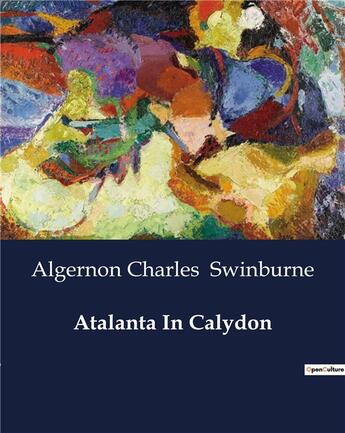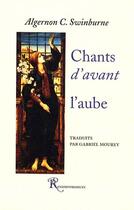-
Date de parution : 03/03/2024
-
Editeur :
Culturea
-
EAN : 9791041987696
-
Série :
(-)
-
Support :
Papier
Résumé:
"Atalanta in Calydon" by Algernon Charles Swinburne stands as a dramatic and poetic reimagining of the classical myth of Atalanta, an emblematic figure from Greek mythology. Published in 1865 during the Victorian era, Swinburne's work breathes new life into the ancient narrative, weaving... Voir plus
"Atalanta in Calydon" by Algernon Charles Swinburne stands as a dramatic and poetic reimagining of the classical myth of Atalanta, an emblematic figure from Greek mythology. Published in 1865 during the Victorian era, Swinburne's work breathes new life into the ancient narrative, weaving together elements of tragedy, passion, and divine intervention.
The poem adopts a dramatic form, reminiscent of Greek tragedies, providing a theatrical framework for the unfolding events. Swinburne skillfully employs dialogues, monologues, and a chorus-elements intrinsic to classical drama-to immerse readers in the tragic tale set in the city of Calydon. This deliberate stylistic choice not only pays homage to the classical tradition but also enhances the immersive and emotive impact of the narrative.
Central to the poem is the exploration of classical themes such as fate, desire, and honor. Swinburne delves into the consequences of defying divine will and the intricate dynamics between human passions and the forces that govern mortal existence. The work stands as a testament to the Victorian fascination with classical motifs and mythology, interpreting age-old tales through the lens of 19th-century poetic sensibilities.
Donner votre avis















